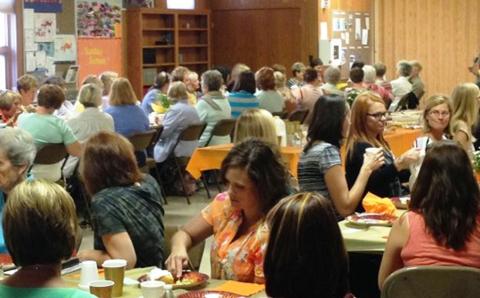Standing outside a dilapidated house being renovated with the help of 20 young people from Ontario, Canada, someone asked a question. “Wouldn’t it be better if we sent the money it took to get us here and—given the 30 percent unemployment rate—used it to hire locals to do this work?”
It’s a great question, one that draws our attention to the complexity of what it means to live as the Christian community in the face of social and economic problems. Recently, books like When Helping Hurts have called into question the impact of mission trips that are often fueled by a mixture of good intentions and bad theology.
As a professor, I believe students need to wrestle with questions like this, but it can be difficult. Imagine my surprise when I learned that I’ve been stereotyped as someone who’d rather point out all the problems with mission trips than take action and do something about it. And yet, there I was in Winnebago, Nebraska, with a group of kids from Canada, helping clean and restore houses.
The following week I was driving the streets of Sioux City, Iowa, picking up Laotian kids for vacation Bible school. The morning before that I was making sure that a group from Wisconsin had the tools they needed to paint a house for a young couple. I hope my actions show that I firmly believe in the promise of mission trips. When done well they not only help meet people’s needs, they also provide an important exercise in learning to get over ourselves.
There are important theological reasons for embracing service projects. Jesus tells us that loving God and loving our neighbor are so deeply intertwined that it’s impossible to separate them. As Jesus shows us, this type of love is only possible when we are able to get outside ourselves and truly receive the “other.” Making God fit the expectations of a particular culture is not love; it is, according to John Calvin, idolatry. The same goes for our neighbor—loving our neighbors should not be an exercise in making them like us. Instead, it means opening ourselves up to their way of life. This is basic gospel stuff—dying to self so we might be raised to a new way of life in relationship with God and neighbor.
This is why I’ve taken the time to lead a service project for the past two summers—to provide an opportunity for young people to experience God’s love as they meet people who are different than them. Yes, we want to develop a passion for social justice and transformation, but that’s not the main reason we invite people to come to the prairie. They come to have their cultural expectations blown wide open. They come to experience the inefficiency and angst that comes with cleaning houses that will more than likely be dirty again by next summer.
The purpose of these projects is not to “save” anyone by painting houses or mowing a lawn; I’m not convinced the work we do matters as much as we think it does. We should not be so presumptuous to believe that somehow we are the ones bringing God or God’s kingdom to the people we encounter. Instead, the promise of service projects is that God meets us in our neighbor, reconfiguring our imagination so we can see that God is already present in ways we never thought possible.
About the Author
Jason Lief teaches theology at Dordt college, Sioux Center, Iowa.









